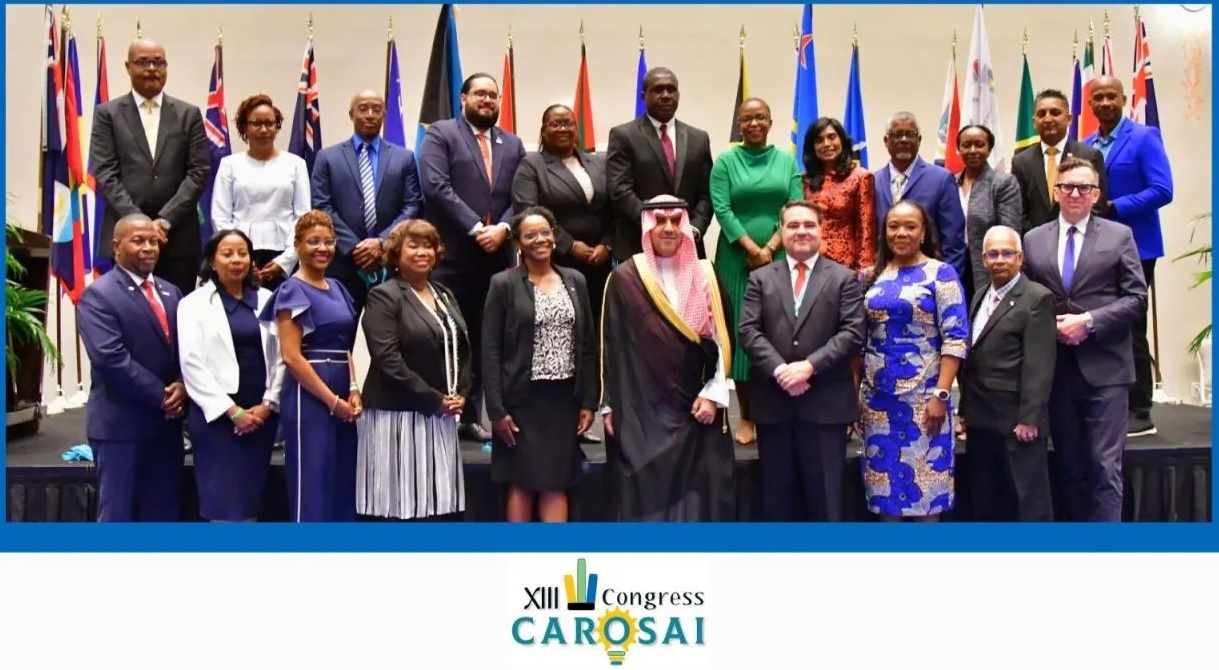Innovation and Sustainability: TCU Participates in the XIII CAROSAI Congress
By Secom / Serint

The Brazilian Federal Court of Accounts (TCU), represented by Vice President Minister Jorge Oliveira, participated in the XIII Congress of the Caribbean Organization of Supreme Audit Institutions (CAROSAI), held from May 18 to 23 in Nassau, Bahamas. The event, titled “An Innovative Approach to Audit Excellence”, gathered leaders and experts from Supreme Audit Institutions (SAIs) across the Caribbean to discuss technological innovation, digital transformation, and sustainability, with a particular focus on climate change.
The Court’s strategic participation aligned with its objective to strengthen regional cooperation and share innovative practices developed by the Brazilian SAI. As Chair of the International Organization of Supreme Audit Institutions (INTOSAI), the TCU reinforces its commitment to promoting regional cooperation and collaboration among SAIs worldwide.
The event was an opportunity for the TCU to strengthen its relations with CAROSAI member SAIs, particularly in view of Brazil’s intention to seek election to the presidency of the Organization of Latin American and Caribbean Supreme Audit Institutions (OLACEFS).
On May 18, an exclusive master class was offered to the heads of CAROSAI SAIs, focusing on digital transformation. Part of the session was led by Aloísio Dourado, Deputy Chief Auditor of the Department for the Integration of Data, Methods, and Technologies for Oversight (AudDigital), who highlighted innovative tools and methodologies that can enhance the efficiency and accuracy of public audits. The master class was also an opportunity to share knowledge and foster dialogue on the challenges faced by SAIs in the region.
At the official opening of the Congress on May 19, Minister Jorge Oliveira, representing both the TCU and INTOSAI, underscored the importance of public audits in tackling global challenges. In his speech, he emphasized the importance of SAIs in fostering transparency, good governance, and efficient resource allocation, while highlighting the need for these institutions to proactively address emerging issues. The Minister referenced the report “Navigating Global Trends,” a landmark achievement of Brazil’s chairmanship of INTOSAI, which aims to support SAIs—especially those with limited resources—in identifying and preparing for future challenges. Among the key topics covered in the report, he drew attention to climate change and digital transformation, both of which were central themes in the Congress discussions.
Minister Oliveira also presented the ClimateScanner, an innovative tool developed by the TCU to assess and monitor climate action across different countries, promoting greater efficiency and transparency. He invited participants to attend the upcoming ClimateScanner Summit, to be held in Rio de Janeiro in August 2025, which will seek to align the tool’s findings with global climate discussions.
The ClimateScanner was also featured in another session of the Congress dedicated to the environmental dimension of public sector audits. On this occasion, TCU shared its experience in developing and applying the tool, discussing its relevance for Caribbean countries, many of which are Small Island Developing States (SIDS) particularly vulnerable to climate-related challenges. Preliminary results from recent assessments were presented, along with discussions on how the tool can address the specific needs of the region.
In addition to the participation of SAIs from the region, the event was also attended by the representative of the INTOSAI Capacity Building Committee (CBC); the Auditor-General of South Africa, Tsakani Maluleke; the President of the SAI of Saudi Arabia, Hussam Alangari; and representatives of the INTOSAI Development Initiative (IDI), among others.
The TCU's participation in the XIII CAROSAI Congress reaffirms the Court's commitment to innovation, sustainability, and international cooperation, contributing to the strengthening of SAIs and the promotion of more effective and accountable public policies.
